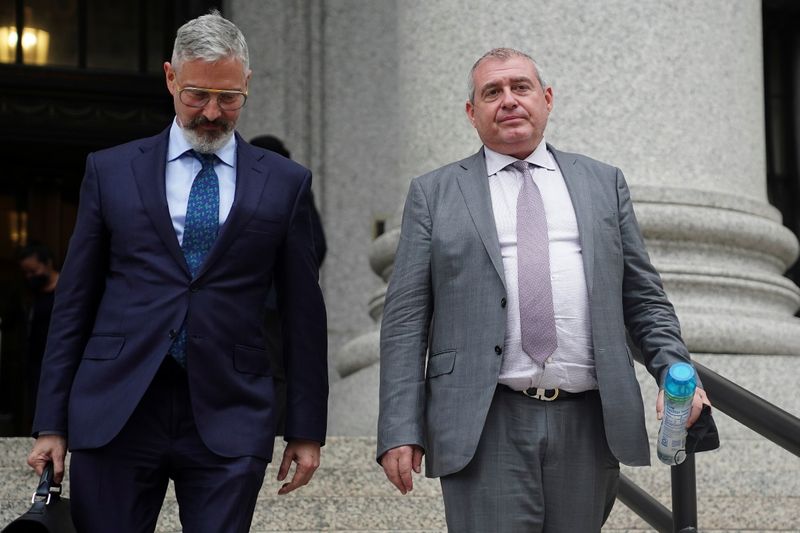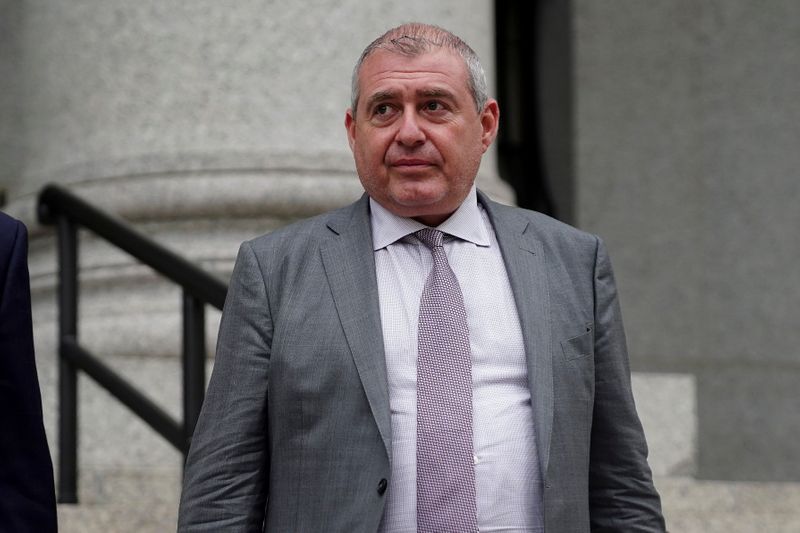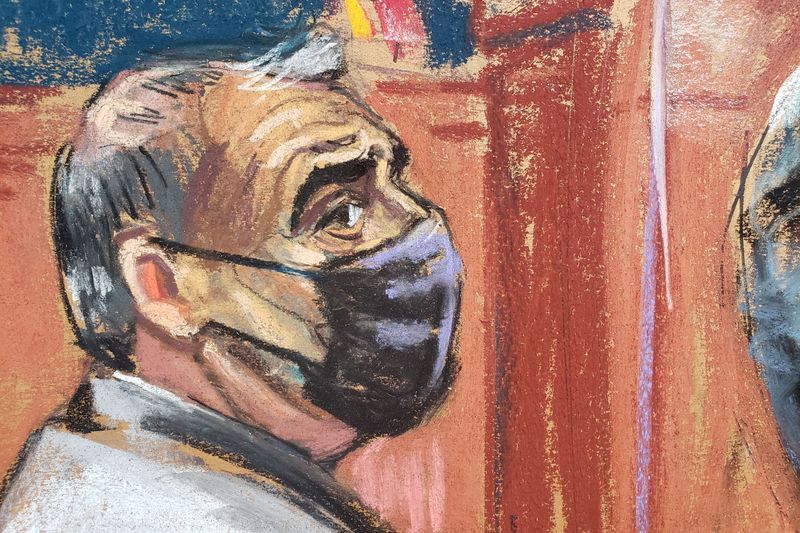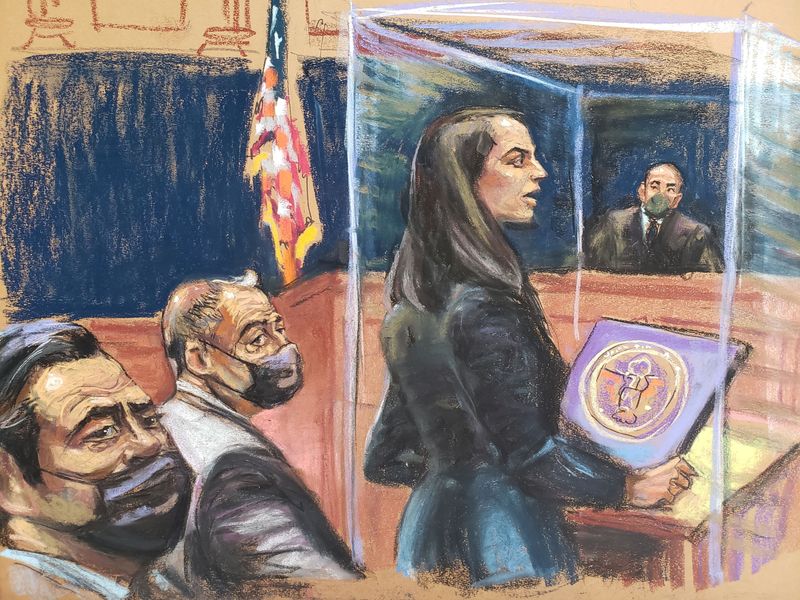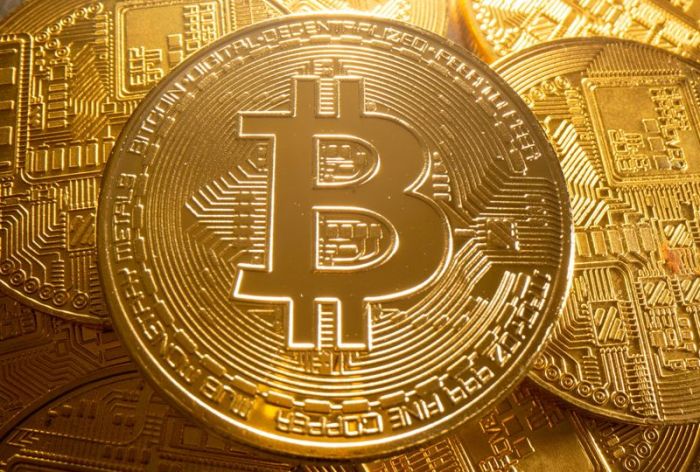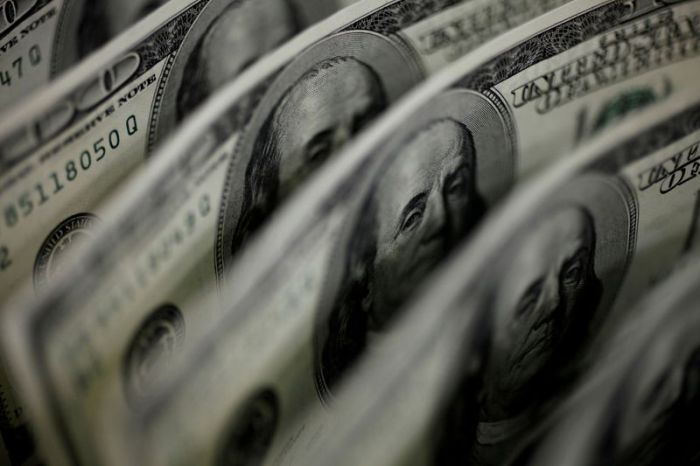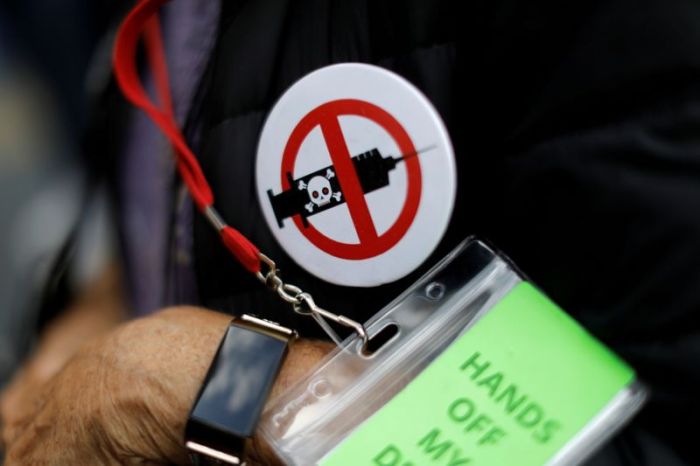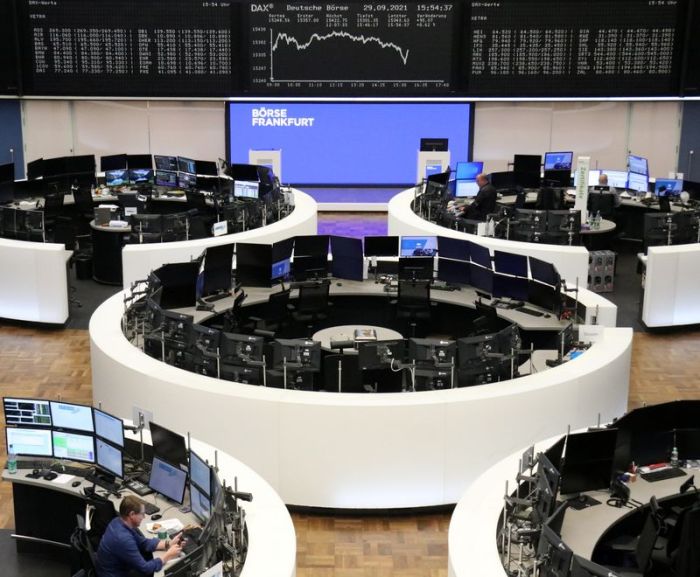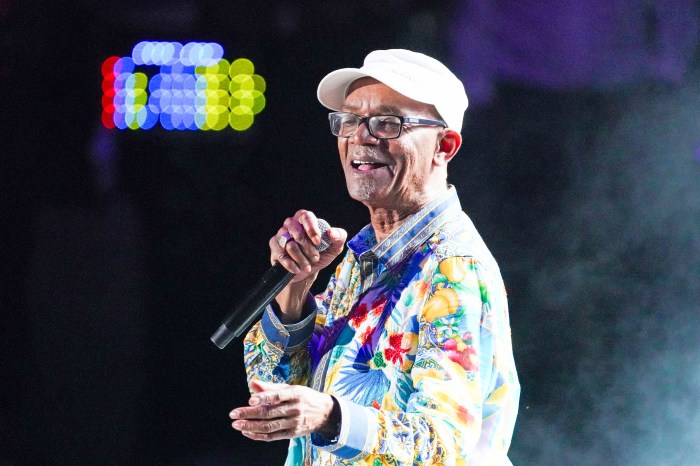NEW YORK (Reuters) -Lev Parnas, a onetime associate of former Donald Trump lawyer Rudy Giuliani, used $100,000 from a wealthy Russian businessman to make illegal donations to U.S. politicians, a federal prosecutor said on Wednesday.
Parnas used the funds to “grease the wheels” to help the businessman, Andrey Muraviev, obtain licenses to operate legal cannabis companies in the United States, Assistant U.S. Attorney Aline Flodr said in her opening argument in Parnas’ trial on charges of violating campaign finance laws.
“They wanted those politicians to do favors for their business,” Flodr told a jury in federal court in Manhattan, referring to Parnas and his co-defendant, Andrey Kukushkin.
“That is what secret foreign money infiltrating American elections looks like,” she said.
The trial overseen by U.S. District Judge J. Paul Oetken has drawn attention because of Parnas’ ties to Giuliani, a forceful supporter of Trump’s false claims that the former president, a Republican, lost the 2020 election to Democrat Joe Biden because of widespread voter fraud.
The Ukrainian-born Parnas has said he worked closely with Giuliani to investigate Biden’s son Hunter, who had past business dealings in Ukraine.
Parnas’ role was highlighted when the U.S. House of Representatives impeached Trump in 2019 for abusing the powers of his office to investigate political rivals. The Senate subsequently acquitted Trump in a trial.
Parnas’ trial could shed light on how campaign finance operates behind the scenes. Flodr also said Parnas concealed an illegal $325,000 donation to Trump’s unsuccessful 2020 re-election bid, a separate allegation from the charges related to the marijuana businesses.
Kukushkin and Parnas have pleaded not guilty. Another Giuliani associate, Igor Fruman, has already pleaded guilty to soliciting money from a foreign national.
In his opening statement, Parnas’ defense attorney Joseph Bondy said Muraviev’s money was not used for the donations but for other purposes.
“There was no plan to take this money from a foreign National and violate election law,” Bondy said, adding that the $325,000 donation came from a legitimate business, not from a “shell company” as Flodr argued.
Bondy said Parnas’ interest in the marijuana venture waned as he grew closer to Giuliani, who Bondy described as “not a cannabis guy.”
Kukushkin’s attorney, Gerald Lefcourt, said his client – a Muraviev associate – had nothing to do with campaign contributions.
Wesley Duncan, a Republican who ran unsuccessfully to be Nevada’s attorney general in 2018, testified that he solicited a $10,000 donation from Parnas, but ultimately received the funds from Fruman.
Duncan said his campaign returned the funds to Fruman because he suspected them to be illegal. He did not say why he became suspicious about the money’s origins.
The Parnas case is separate from a federal inquiry into Giuliani’s dealings in Ukraine, including whether the former New York mayor violated lobbying laws while working as Trump’s lawyer.
Giuliani has not been charged with any crimes and has denied wrongdoing. His lawyer has said Parnas’ case and the lobbying probe are unrelated.
(Reporting by Luc Cohen; Editing by Ross Colvin and Jonathan Oatis)

